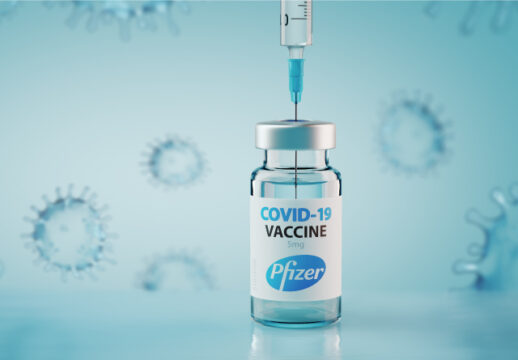COVID-19 vaccine developed by Pfizer/BioNTech had an excellent safety profile and remarkably high efficacy (100%) in teenagers.

The original study included patients ≥16 years of age and further study was needed for an even younger population that needed to go back to school.
Same as in December 2020, NEJM was the magazine chosen to publish the good news about the population between 12 and 15.
The immune response of this population was analyzed vs. youngsters between 16 and 25. In addition, safety and efficacy was assessed for confirmed COVID-19 cases 7 days after the second dose.
It included 2260 teenagers from several countries blindly randomized 1:1 to receiving the vaccine (n=1131) vs placebo (n=1129).
Like other age groups, adverse effects were transient and mild to moderate. Among them they found injection-site pain (79% to 86% of participants), fatigue (60% to 66%) and headache (55% to 65%). There were no major vaccine-related adverse events.
Read also: EuroPCR 2021 | CASTLE: Orsiro vs Xience Guided by Intravascular Imaging.
SARS-CoV-2 neutralizing titers after the second dose reached non-inferiority and even resulted higher in the younger population compared against participants aged 16 to 25.
There were no COVID-19 cases 7 days after the second dose in the vaccinated population vs. 16 cases in the placebo group. This translates into 100% efficacy (CI 95%, 75.3 to 100) of the RNA based vaccine developed by Pfizer/BioNTech in the 12- to 15-year-old population.
Conclusion
In a population of 12- to 15-year-olds, the Pfizer/BioNTech vaccine has a favorable safety profile, produces an even higher population immune response vs. other populations and is highly effective against COVID-19.
nejmoa2107456Original Title: Safety, Immunogenicity, and Efficacy of the BNT162b2 Covid-19 Vaccine in Adolescents.
Reference: Robert W. Frenck, Jr et al. N Engl J Med. 2021 May 27. Online ahead of print. doi: 10.1056/NEJMoa2107456.
Subscribe to our weekly newsletter
Get the latest scientific articles on interventional cardiology





